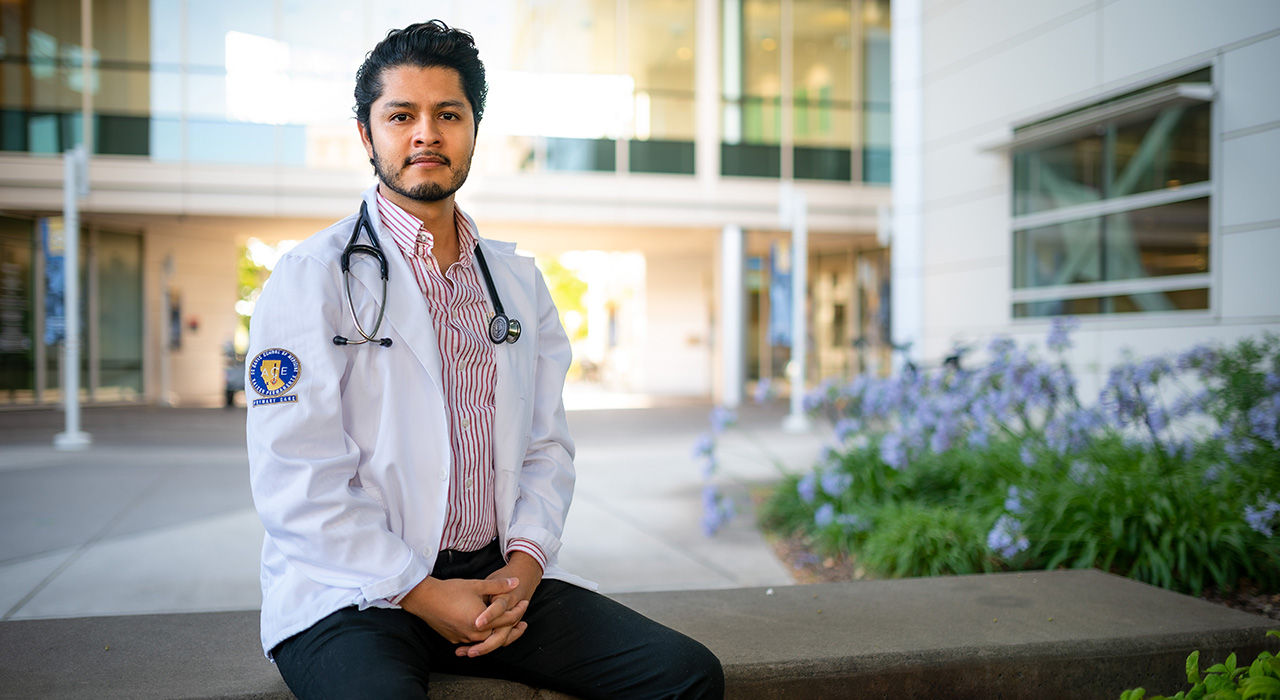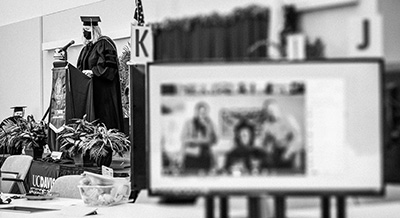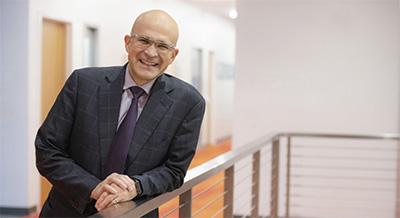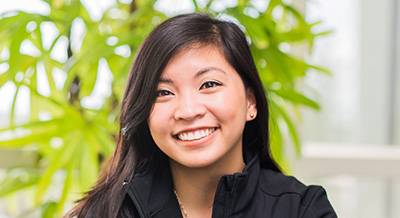His story begins in Mexico, where a ruined economy forced his parents to move to the U.S. As a pre-teen, he crossed the border in a heart-pounding effort to reunite with them in San Francisco, where nine family members lived in a tiny apartment. He started high school unable to speak English. In college, he financed his undergraduate education by washing dishes late at night in restaurants.
Now in his second year at the UC Davis School of Medicine, Edgar Velázquez is determined to become a primary care physician.
But despite making it this far, he faces one more obstacle, unrelated to the rigors of school: Velázquez is among at least 650,000 young undocumented immigrants known as DACA recipients who have temporary protected legal status until officials in Washington, D.C., decide the fate of the politically controversial program.
Velázquez, who describes himself as being “in a constant struggle for survival,” is scared and anxious about his future if the federal government eliminates the Deferred Action for Childhood Arrivals program.
“I have to worry about whether I’ll be able to continue medical school moving forward,” he said. “I worry about my future in residency; if DACA gets taken away, I cannot become a doctor, and I cannot fulfill my dream of going back to my community and serving the underserved.”
Whenever he’s anxious about DACA, his place of comfort is studying.
Before college, Velázquez excelled in math (“because I didn’t need English for it”) but also was drawn to science. In a UCSF summer research program, he noticed that scientists hailed from all over the world, “and their accents are thicker than mine!” Lying on the floor of the apartment each night, which had no beds, he began to envision himself as one.
Yet, a question kept nagging him: How can science help people in his underserved neighborhood, where the homeless slept outside his building?
Velázquez applied to 20 universities, including Ivy League schools he didn’t realize were prestigious, and gained acceptance to nearly all. Being undocumented, however, limited access to grants, scholarships or jobs.
So he became a dishwasher, like his father.
Velázquez also enrolled at San Francisco State, and in a scholarship program met UCSF professor Sharad Jain, the primary care residency director at Zuckerberg San Francisco General Hospital. Jain became a mentor and invited Velázquez to shadow him there.
The young man also worked up to 18 hours a day in kitchens to pay for his studies, while somehow finding time to volunteer as an interpreter in community clinics. Then in 2012 the Obama Administration created DACA, which provided Velázquez with a work permit, allowing him to apply for work more meaningful for his career.
At UC Davis he’s now a member of a highly competitive, three-year compressed medical school program known as ACE-PC, short for Accelerated Competency-based Education in Primary Care. Jain, now associate dean for students at UC Davis School of Medicine, calls Velázquez “a true example” of the type of student the school values.
“Edgar inspires me because, to me, he has entered the profession for all of the right reasons: He is committed to service, to health equity, and to improving the health of his community,” Jain said. “He has shown resilience and commitment to this journey.”





